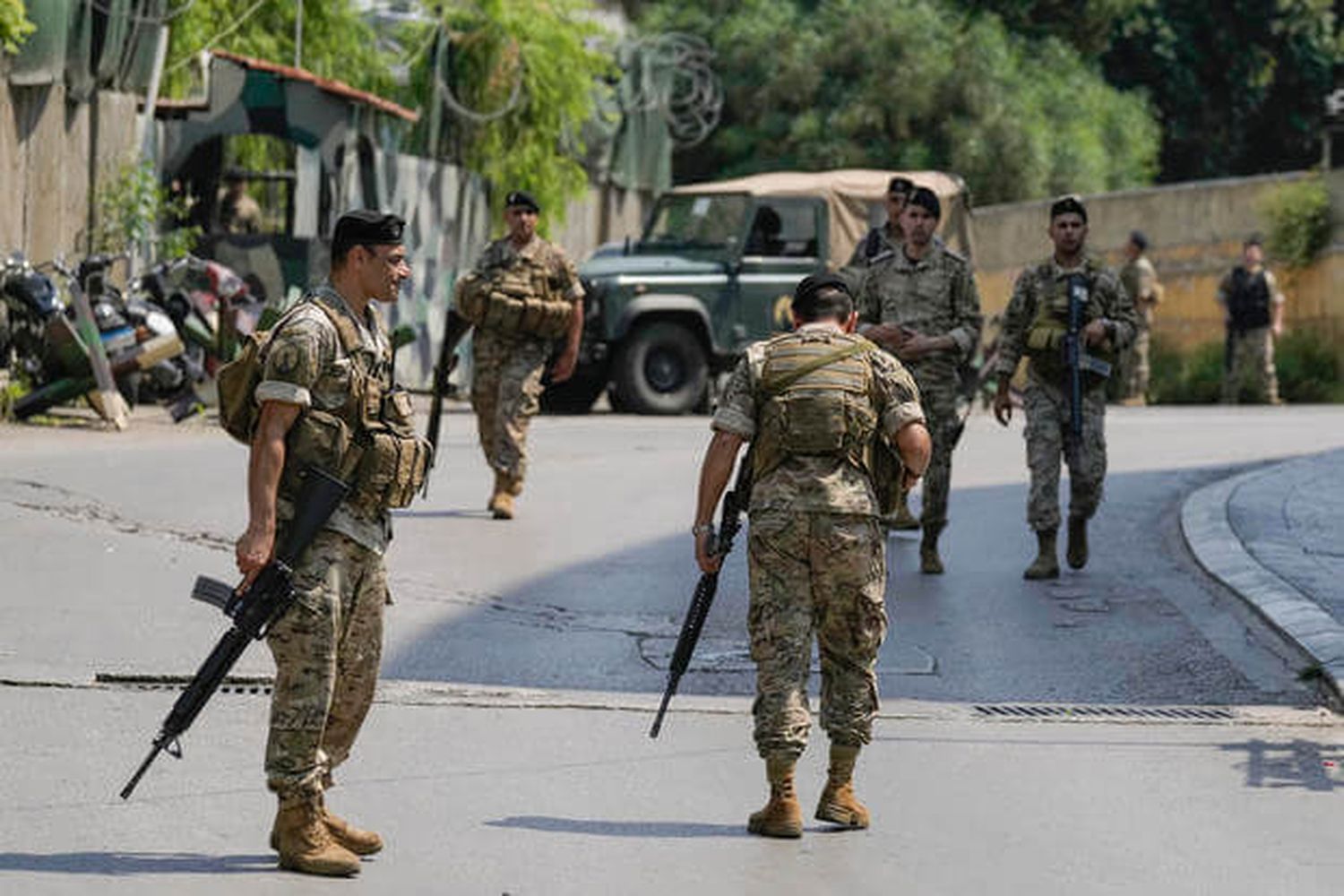Lebanon Shootout
Gunman Captured Outside U.S Embassy After Shootout in Lebanon
The Lebanese army said a gunman attempted to attack the U.S. Embassy near Beirut
Beirut, Lebanon (June 5, 2024) — A gunman was apprehended by Lebanese soldiers following a dramatic shootout outside the U.S. Embassy in Beirut on Wednesday morning. The incident, which unfolded in the suburb of Aukar, north of the Lebanese capital, has heightened concerns amid ongoing regional tensions.
The Lebanese military reported that the assailant, identified as a Syrian national, engaged in a firefight with soldiers for approximately 30 minutes before being shot and captured. The gunman, who sustained injuries during the exchange, was subsequently transported to a hospital for treatment. The motives behind the attack remain unclear, although local media have circulated images showing the attacker wearing a black vest emblazoned with the Arabic script for "Islamic State" and the initials "I" and "S."
The U.S. Embassy confirmed the incident, noting that "small arms fire" was reported near the embassy entrance. The embassy expressed gratitude for the swift response from both Lebanese troops and its own security team, which ensured the safety of the diplomatic staff. No casualties among the embassy personnel were reported, and the embassy remained closed to the public for the remainder of the day, with plans to resume regular operations on June 6.
Caretaker Prime Minister Najib Mikati's office released a statement following meetings with the defense minister and army commander, confirming that the situation had stabilized and that serious investigations were underway. The Lebanese military has since deployed additional troops around the embassy and surrounding areas to bolster security.
This incident comes at a time of heightened tension in Lebanon, a country already grappling with political deadlock, economic hardship, and ongoing clashes between Hezbollah militants and Israeli troops along the border. These clashes have displaced thousands of people and exacerbated the already volatile situation in the region.
The U.S. Embassy in Beirut has a history of being targeted. In 1983, a devastating bombing attack killed 63 people, an act attributed to the Lebanese militant group Hezbollah. Following that attack, the embassy was relocated from central Beirut to its current location in Aukar. However, the new location was also targeted in a bomb attack on September 20, 1984. More recently, in September 2023, a Lebanese man was detained after opening fire near the embassy, though no casualties were reported. In October 2023, hundreds of protesters clashed with Lebanese security forces near the embassy in demonstrations supporting Gaza's people and the militant group Hamas during its conflict with Israel.
The latest attack on the U.S. Embassy coincides with escalating border tensions between Lebanon and Israel. Israel, a close ally of the United States, has signaled the possibility of an imminent military offensive against Hezbollah. Israeli military chief Lt. Gen. Herzi Halevi announced that troops were prepared to "move to an offensive in the north," following recent rocket attacks by Hezbollah that ignited wildfires in northern Israel. These developments have raised concerns of a broader conflict, with local officials reporting significant casualties and displacement on both sides of the border.
Lebanon's political and economic instability has been further strained by these regional conflicts. The country has endured years of economic hardship, with a collapsing currency, widespread poverty, and a lack of basic services. The ongoing clashes and the potential for a new Israeli offensive have only added to the uncertainty and fear among the Lebanese population.
As investigations into the motives and background of the captured gunman continue, the incident serves as a stark reminder of the fragile security situation in Lebanon and the broader Middle East. The swift response by Lebanese forces and the U.S. Embassy's security team has been praised, but the underlying tensions that led to this attack remain unresolved, posing ongoing challenges for both local and international stakeholders in the region.

